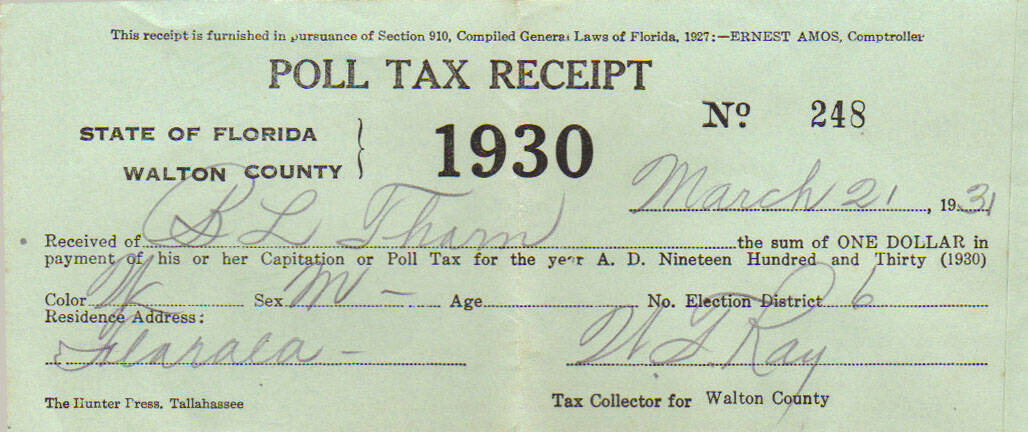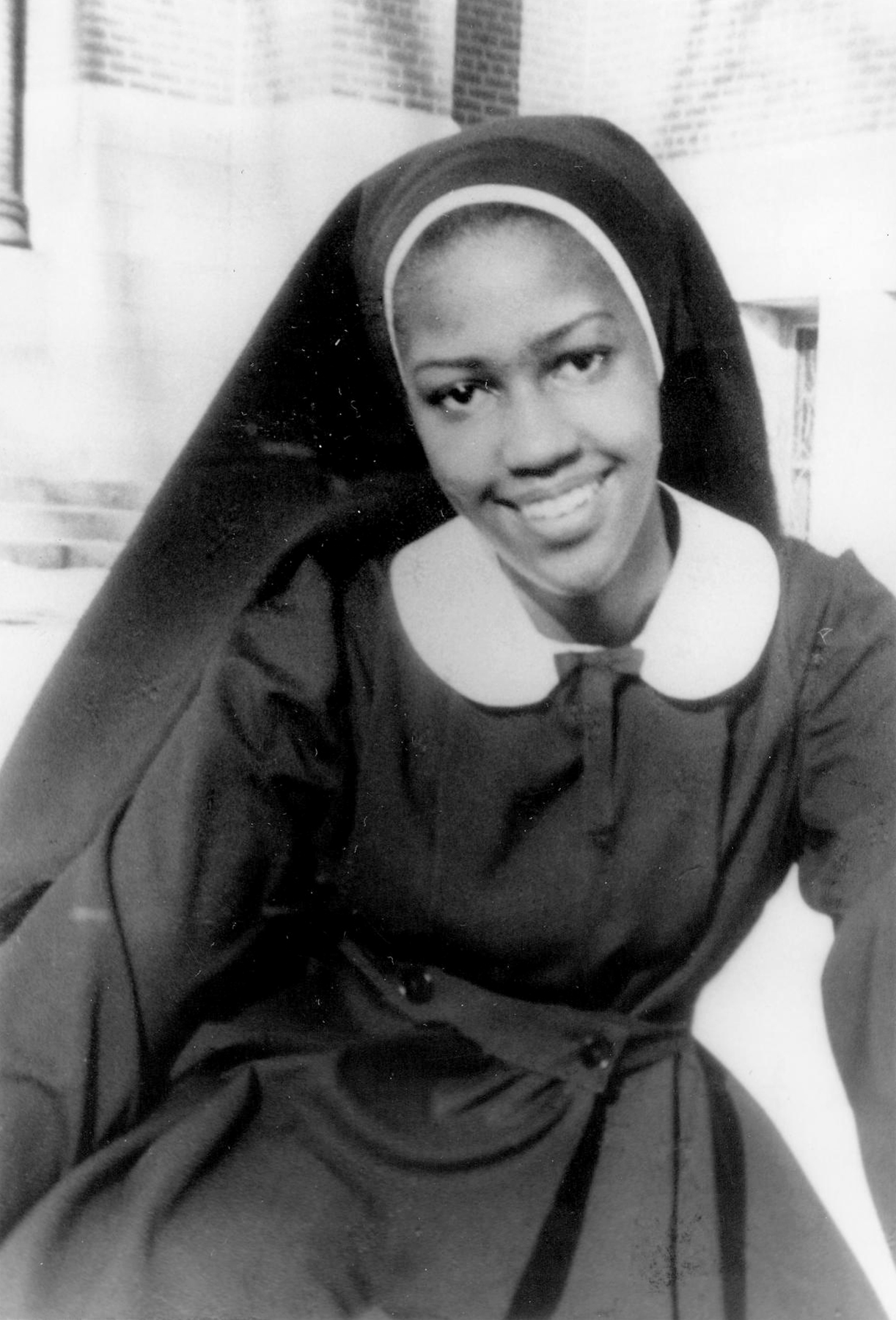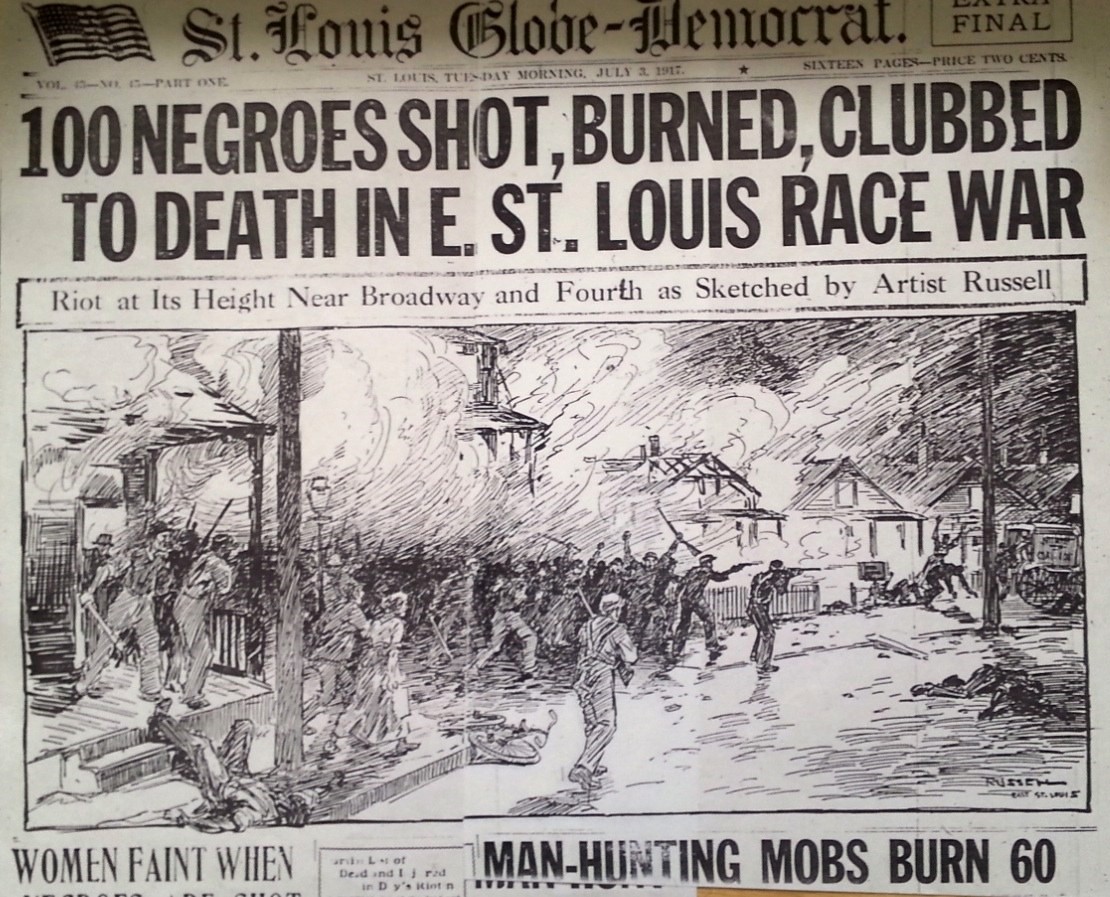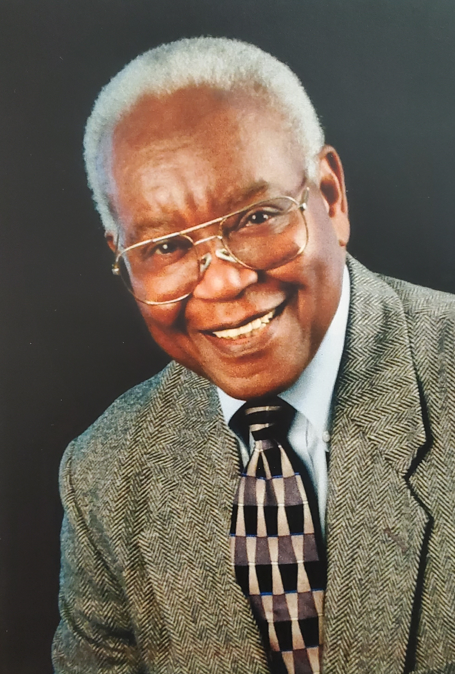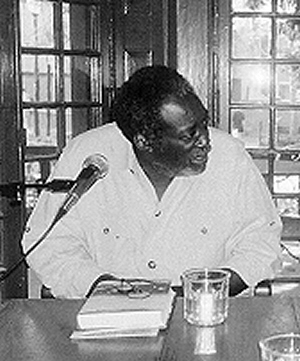By the end of the Civil War, African Americans made up nearly half of the population of Florida. As in other Southern states, most Blacks in Florida before the Civil War were enslaved people and none had the right to vote. The passage of the 15th Amendment in 1870 theoretically extended the right to vote to all citizens regardless of race, color, or previous condition of servitude. A closer evaluation of the 15th Amendment indicates that it states the right to vote cannot be denied because of race. As a result, other methods of voter suppression, such as poll taxes and literacy tests, were used to get around the wording of the amendment and effectively disenfranchise African Americans in the election process. Florida was the first ex-Confederate state to use the Poll Tax as an effective barrier to prevent Blacks from voting.
White lawmakers in Florida had a strategic reason to fear newly empowered African American voters at the end of the Civil War. Blacks made up about 45% of Florida’s population and thousands of white residents had lost their right to vote because of their Confederate ties. By 1867, there were 15,434 Black voters registered in Florida and just 11,148 who were white.
Soon after the Civil War, there was an explosion in the number of Black voters (male only) and Black elected officials. Nineteen Blacks were elected to the 76-member Florida Legislature in 1870. During this election, Josiah Walls, a former slave, and Union soldier from Alachua County, became Florida’s first Black member of Congress. Walls would be the only Black member of Congress from Florida for the next 116 years.
In 1889, Florida’s Legislature adopted a $2 annual poll tax as a requirement for voting. On the surface, there was nothing discriminatory about the tax. Both whites and Blacks had to pay it. In reality, the legislators knew that the $2 tax (nearly $43 in 2022 dollars) would affect Blacks more because they were overwhelmingly poor. Although some poor whites were also disenfranchised, they could often find ways to circumvent the tax. Political candidates, for example, often paid the cost to entice white voters to support them. Election officials frequently “overlooked” the tax for whites without legally coming into conflict with the 15th Amendment.
Florida officially abolished the poll tax on June 14, 1941. This was due to so many candidates trying to buy votes by paying the tax. U.S. Sen. Spessard Holland of Florida would be one of the leaders pushing to abolish the tax in federal elections. In 1964, the 24th Amendment was adopted abolishing the poll tax in all federal elections. It would take the passage of the Voting Rights Act of 1965, however, before the majority of African Americans in Florida could register to vote.

